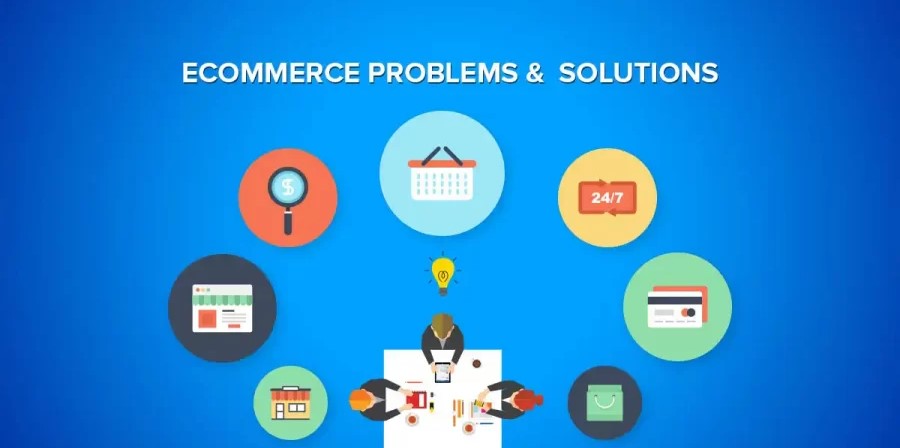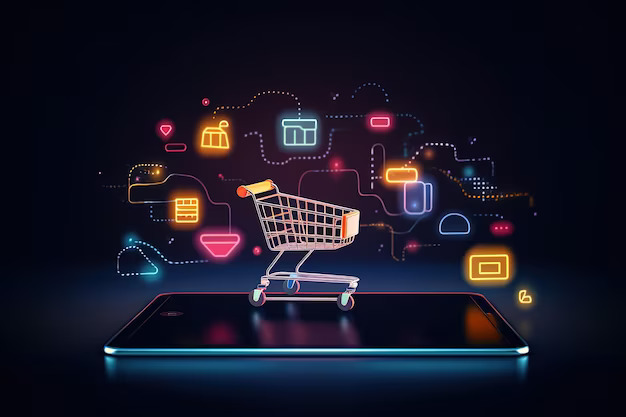
This article explores the fascinating intersection of technology and shopping, known as “Ecommerce Fusion.” By harnessing the power of technology, businesses are revolutionizing the way people buy products and services. Let’s delve into the various aspects and benefits of this evolving phenomenon.
The Evolution of Ecommerce
The concept of commerce has rapidly evolved. From traditional brick-and-mortar stores, businesses gradually expanded their reach to the online realm. SEO for ecommerce, or electronic commerce, emerged as a game-changer in the retail industry. It opened up new avenues for businesses to showcase their products and reach a wider audience.
The Role of Technology in Ecommerce Fusion
Technology plays a pivotal role in driving the success of Ecommerce Fusion. It acts as the catalyst that blends the online and offline shopping experiences seamlessly. Through various technological advancements, businesses can offer customers personalized interactions, efficient operations, secure transactions, and innovative shopping features.
Personalization: Tailoring the Shopping Experience
Ecommerce Fusion empowers businesses to personalize the shopping experience for their customers. By leveraging data analytics and customer insights, companies can understand individual preferences and provide tailored recommendations. Personalization enhances customer satisfaction, increases engagement, and fosters brand loyalty.
Enhanced Customer Engagement through Interactive Features
One of the key benefits of Ecommerce Fusion is the ability to engage customers through interactive features. Chatbots, live chat support, and virtual shopping assistants enhance the shopping experience by providing instant assistance and valuable product information. These features replicate the personalized service one would receive in a physical store, creating a sense of connection and trust.
Streamlining Operations with Automation and Artificial Intelligence
Automation and artificial intelligence (AI) have revolutionized the way businesses operate in the Ecommerce Fusion era. From inventory management to order fulfillment and customer service, AI-powered systems streamline operations, reduce costs, and improve efficiency. AI algorithms can analyze vast amounts of data to identify patterns and make accurate predictions, enabling businesses to optimize their processes.
Seamless Payment and Security Systems
Secure and seamless payment systems are essential in Ecommerce Fusion. With advancements in technology, customers can now make purchases with just a few clicks or taps. Payment gateways ensure the security of transactions, safeguarding sensitive information. Additionally, innovative payment methods such as digital wallets and cryptocurrencies have emerged, providing more options for customers.

Augmented Reality and Virtual Reality in Ecommerce
Augmented reality (AR) and virtual reality (VR) technologies have transformed the way customers experience products in Ecommerce Fusion. AR allows customers to visualize products in their real-world environment, virtually trying them before making a purchase. VR takes the immersion a step further, offering virtual shopping experiences where customers can explore virtual stores and interact with products. These technologies bridge the gap between online and offline shopping, enhancing customer engagement and reducing purchase hesitation.
Ecommerce Fusion and Supply Chain Management
Ecommerce Fusion has revolutionized supply chain management. From inventory management and order fulfillment to last-mile delivery, technology has streamlined the entire process. Automation, RFID tracking, and real-time inventory management systems ensure efficient operations and timely order fulfillment. Improved supply chain management minimizes errors, reduces costs, and enhances customer satisfaction through faster delivery.
Mobile Commerce: Shopping on the Go
Mobile devices have become an integral part of our lives and have had a profound impact on Ecommerce Fusion. Mobile commerce, enables customers to shop conveniently anytime and anywhere using their smartphones or tablets. With mobile-optimized websites and dedicated shopping apps, businesses can provide a seamless mobile shopping experience. This accessibility has significantly expanded the customer base and opened up new possibilities for businesses.
Social Commerce: The Power of Social Media
Social media platforms have become influential channels for Ecommerce Fusion. Businesses leverage social commerce by integrating shopping features directly into social media platforms. Customers can discover products, read reviews, and make purchases without leaving their social media feeds. Social media also enables businesses to engage with customers, build brand awareness, and leverage user-generated content for marketing purposes.
Sustainability and Ethical Considerations in Ecommerce
In the era of Ecommerce Fusions, sustainability and ethical considerations have gained prominence. Customers are increasingly conscious of the environmental impact and ethical practices of businesses. Sustainable packaging, eco-friendly initiatives, fair trade practices, and transparent supply chains are key factors that influence consumer purchasing decisions. Businesses that prioritize sustainability and ethics can build trust, attract socially-conscious customers, and differentiate themselves in the market.
Cross-Border Ecommerce: Expanding Global Reach
Ecommerce Fusions has facilitated cross-border trade, allowing businesses to expand their reach globally. With advanced logistics and international payment gateways, businesses can cater to customers from different countries and cultures. Cross-border Ecommerce presents opportunities for growth and diversification, but it also requires businesses to navigate international regulations, language barriers, and cultural nuances.
The Future of Ecommerce Fusion
The future of Ecommerce Fusion holds immense potential. As technology continues to advance, we can expect further integration of online and offline shopping experiences. Advancements in AI, machine learning, and big data analytics will drive personalization to new heights. Emerging technologies such as blockchain will enhance security and transparency in transactions. The boundaries between physical and digital shopping will continue to blur, creating innovative and immersive experiences for customers.
Conclusion
Ecommerce Fusion has revolutionized the way people shop, bringing together technology and commerce in a seamless manner. It has enabled businesses to offer personalized experiences, enhance customer engagement, streamline operations, and expand their global reach. Through the integration of technologies like AI, AR, VR, voice recognition, and data analytics, businesses can provide unique and immersive shopping experiences that were once unimaginable.
As Ecommerce Fusion continues to evolve, businesses must stay ahead of the curve by embracing new technologies, adapting to changing customer preferences, and prioritizing sustainability and ethics. By doing so, they can not only meet the demands of the modern consumer but also unlock new opportunities for growth and success.
Frequently Asked Questions:
What is Ecommerce Fusion?
Ecommerce is the seamless integration of technology and shopping, where businesses utilize various technological advancements to provide a comprehensive and engaging online shopping experience.
How does personalization play a role in Ecommerce Fusion?
Personalization is a crucial aspect of Ecommerce. By leveraging data analytics and customer insights, businesses can tailor the shopping services experience to individual preferences, resulting in increased customer satisfaction and loyalty.
What are some examples of technologies used in Ecommerce Fusion?
Technologies such as AI, AR, VR, voice recognition, and data analytics are used in Ecommerce to enhance customer engagement, streamline operations, and offer innovative shopping features.
How does Ecommerce Fusion impact supply chain management?
Ecommerce Fusion has revolutionized supply chain management by introducing automation, real-time inventory management, and efficient order fulfillment, resulting in improved operational efficiency and faster delivery.
What is the future of Ecommerce Fusion?
The future of Ecommerce holds great potential. Advancements in technology will further blur the boundaries between physical and digital shopping, leading to more personalized experiences and innovative shopping features.






